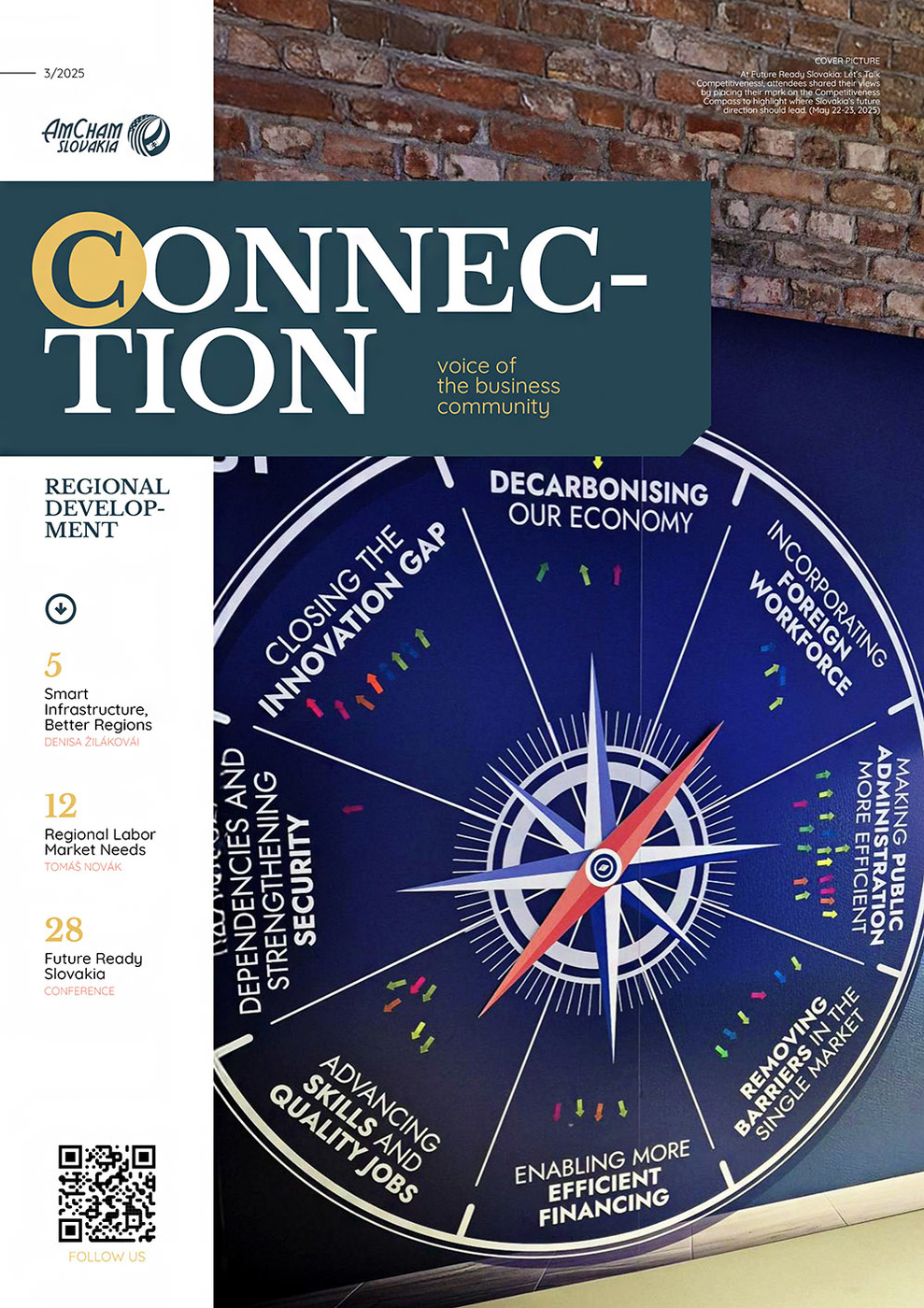Regions with a qualified workforce have a much better chance of attracting investments, supporting entrepreneurship and achieving a higher standard of living for their residents. On the other hand, regions that suffer from a lack of qualified people often face economic decline and the departure of young and talented individuals.
Workforce Drives Growth
One of the main reasons why quality and availability of human resources are so important is their direct impact on productivity and competitiveness. The modern economy is based on knowledge and innovation. Companies need qualified employees who can leverage new technologies, adapt to changing market conditions, and bring their own ideas and solutions. Without a quality workforce, companies struggle to grow, and the region loses its ability to maintain its position in the global competition.
The availability of the workforce means not only having enough people but also their willingness and ability to work in the given region. This is related to a variety of factors, such as the level of the education system, transportation accessibility, quality of life, available housing, and opportunities for personal development. If a region cannot offer sufficiently attractive conditions, it often faces the outflow of labor to other, more appealing areas.
 Align Education and Jobs
Align Education and Jobs
The education system plays a major role in this issue. Schools and universities should be able to respond to the current needs of the labor market and prepare specialists who are truly employable. However, this requires close cooperation between educational institutions and businesses. If companies actively communicate with schools and participate in the creation of educational programs, they have a better chance of obtaining employees who meet their needs. This increases the employability of graduates and improves the overall situation in the labor market.
Soft Skills Matter
It is also important to realize that the quality of human resources is not limited to professional knowledge. So-called soft skills, such as communication, teamwork, creativity, and problem-solving ability also come into play. These skills are increasingly important and employers often value them more than technical expertise alone. Regions that support the development of these competencies can respond better to changes and maintain their competitiveness.
The impact of human resources on regional development is not only seen in the economy. It also has social and cultural dimensions. A high-quality workforce contributes to creating a vibrant and dynamic society that is open to new ideas and innovations. This attracts not only investors and entrepreneurs but also young and talented people who are looking for a place for their professional and personal development.
Shared Responsibility
Regions that want to succeed should therefore pay great attention to the development and retention of quality human resources. This means not only investing in education and professional training but also creating an attractive environment for living and working.
Besides the public sector, businesses themselves also bear a significant responsibility in this regard. They should invest in the education of their employees, support their professional growth, and participate in local initiatives. The cooperation of businesses, schools, and the public sector is the cornerstone of success. If it is possible to create an environment that supports the quality of human resources, the region gains a long-term competitive advantage.
 Demographics and Retention
Demographics and Retention
Last but not least, it is necessary not to forget the demographic aspects. Many regions are struggling with the departure of young people and an aging population. This is a major challenge that must be addressed. Attracting young talent back to the region or retaining them requires a comprehensive approach that combines support for employment opportunities, quality housing, education, and cultural life.
Overall, it can be said that the quality and availability of human resources are among the most important factors for successful regional development. Regions that can invest in their people, offer them good working conditions, and a quality living environment have a much greater chance of succeeding in today’s rapidly changing world. Cooperation between businesses, schools, and the public sector is key to ensuring that a region is not only a place to live but also a place where people want to stay and develop their abilities.
Regional development in the areas of education and employment is both a challenge and an opportunity. If we focus on connecting education, entrepreneurship, and innovation, and if we support flexibility and the availability of investment, we can create conditions in which young people will not leave, and may even start coming back. For SAM International, this means an opportunity to be a partner to regional players and co-create an environment where success and satisfaction are not only in Bratislava but in every corner of Slovakia.
Dušan Elko, Managing Partner SK&CZ, SAM International; Member AmCham Slovakia Board



Follow us